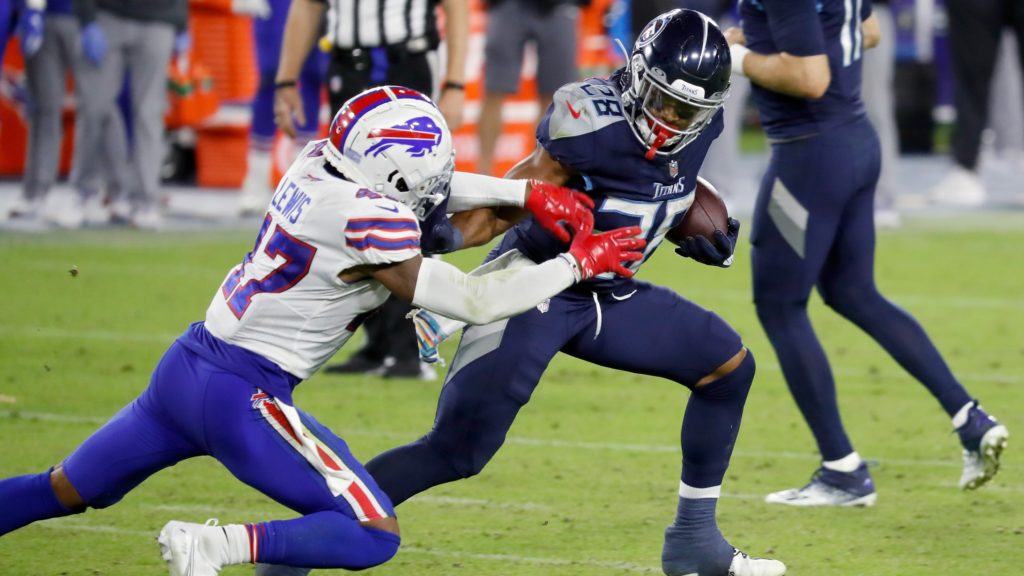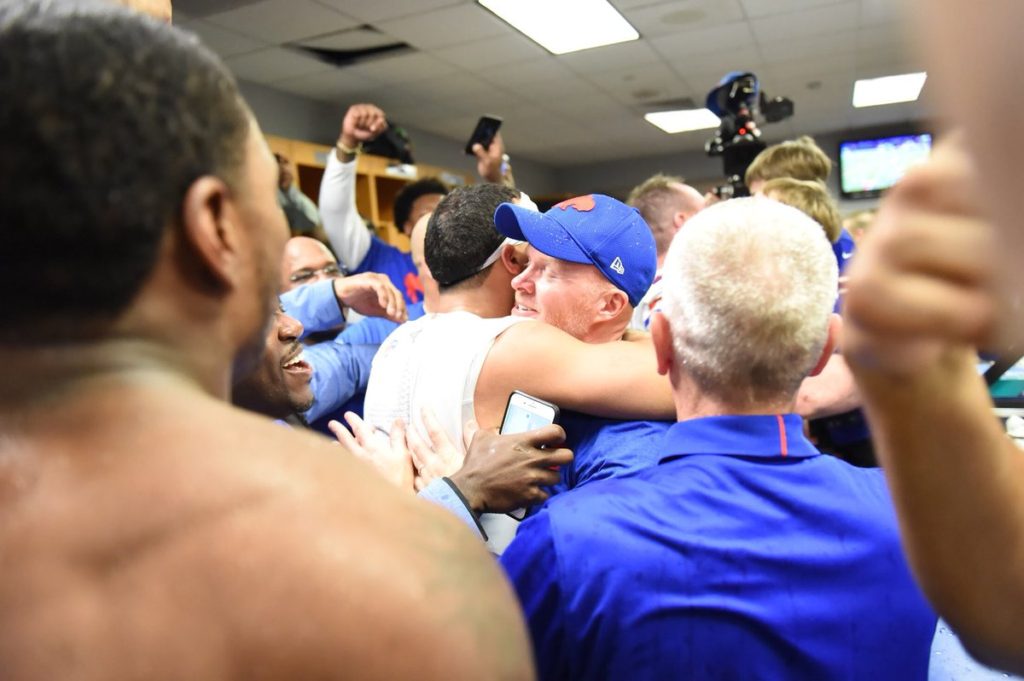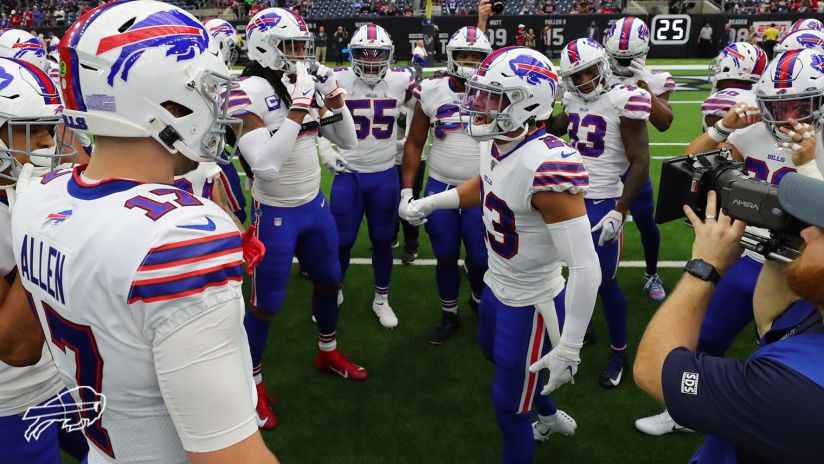
Crunch all the numbers you want. Any way you look at the Buffalo Bills 42-16 meltdown in Nashville on Tuesday night, the lack of mental focus during the game clearly led to their undoing. You could hear the collective gasp from Western New York all the way to Wyoming when Andre Roberts deflected a pass and the Titans scored on the first drive of the game.
We all sensed that feeling of impending doom because we’ve witnessed it too many times. This game had all the earmarks of disaster set in place before the team even boarded their flight to Nashville.
We can make all the excuses in the world for the loss and most are legitimate in this case. This game was scheduled and rescheduled so many times I can’t imagine the players and coaches weren’t going crazy trying to figure out who their next opponent would be and when they would play.
COVID-19 has put an entire new layer of mental gymnastics around getting through an entire NFL season. With news that the Indianapolis Colts organization is the pandemic’s latest victim, one has to wonder if the NFL will even be able to finish the season. The recent surge in COVID-19 cases around the country will certainly present a great challenge for the NFL the rest of the way.
However, blaming the gyrating schedule or even COVID-19 for why the Bills showed up in Nashville unprepared and looking nothing like the 4-0 team that got off the plane may be overly simplistic. At the very least, it ignores the fact that Bills teams under Sean McDermott seem to have inexplicable periodic meltdowns. They don’t just lose a game, they get demolished.
Also, sometimes the losing doesn’t stop at just one game. Remember the Bills’ three game losing streak during November 2017? During McDermott’s rookie year as head coach, they lost to the Jets, Saints and Chargers in horrendous fashion. Of course we’d rather remember this as the team that also ended a 17 year playoff drought.

We all knew 2018 would be a year of rebuilding and purging dead cap space, but the Bills stunk it up again during October and the first week of November with four losses in a row to the Texans, Colts, Patriots and Bears.
Although 2019 was better in terms of consecutive losses, the Bills did lose their last three games of the season if you include the playoff loss to the Texans. One could argue the loss to the Jets was because it was the last game of the season and the Bills sat many of their starters.
However, I would suggest that losing the last game of the 2019 season to the Jets may have set the Bills up for failure against the Texans in the playoffs. The Bills clearly lost their mental edge after blowing a 16-0 lead in the third quarter. We’ll never know if sitting the starters against the Jets interrupted their mental preparation and focus.
So does this mean the Bills under Sean McDermott are doomed to be streaky? Not necessarily, but from a mental standpoint this disturbing pattern should be thoroughly examined. How can one team look like world-beaters and then proceed go off the rails so predictably?
Of course one can find any number of reasons the Bills may win or lose a specific game. That’s what analytics are for… the deep dive. However, one needs to also examine patterns of winning and losing over the course of an entire season in order to identify cognitive issues that may contribute to a spate of bad performances.
This requires a different set of skills, most notably the ability to identify patterns of behavior that are counterproductive, which isn’t as easy as it sounds. If it was, every team would be mentally consistent from game to game.
Since the game is still played by human beings, identifying relevant cognitive variables requires the mental framework of a psychologist…. which fortunately Sean McDermott definitely possesses via rigid self-education.
It may seem obvious, but stringing together a set of observations that help illuminate a behavioral issue within a team isn’t as easy as it seems. For example, if players aren’t open and honest with each other, resentment can fester in a locker room full of alpha males. However, the root cause or trigger may not be readily apparent at the time.

Furthermore, you can’t evaluate team chemistry by any measurable standard, though most people can instinctively tell whether there is harmony in the locker room at any given point in time during an NFL season. When every moment of a team’s day is followed closely by the media and fans there are plenty of opportunities to make inferences based on these observations.
So… is there anything we can glean from the first five games of the season with respect to the Bills and their mental performance? Obviously all is well and everyone who loves the Bills are happy when they win… but put up a stinker and just watch the knee-jerk reactions fly on social media about why it happened.
The Titans game had so many extraneous variables involved it would be impossible to identify any one trigger for the Bills collective mental meltdown in Nashville. There’s little doubt the team was uncharacteristically unprepared to face adversity at the beginning of the game, made a couple of attempts to pull it together, and then completely melted down in the fourth quarter.
Since it appears the Bills do have blooper games like these periodically, it’s reasonable to wonder if this young team has learned the lesson of not leaning into the hype so much. They all tell media they don’t listen to the hype, but we know they hear about it one way or another. But as previously mentioned, that alone does not explain the meltdown in Nashville.
So why did the Bills lose focus on Tuesday night?
There’s no doubt the Titans game was truly a pain in the ass for players and coaches because of all the changes. Not knowing for so long when or who the Bills would face probably did mess with them mentally, though none would ever likely admit it. Highly disciplined people don’t like having their routine messed up, let alone turned upside down for a week or so in the middle of the season.
But here’s where it gets tricky for McDermott. Whatever caused the mental lapses we saw on Tuesday night (ex/ three false starts in less than a couple minutes), they cannot be allowed to breed a sense of doubt going into the game against the Chiefs on Monday afternoon.
The Bills/Chiefs game is monumental for changing the narrative about the Bills. If the Bills get wiped out again, the legitimacy of their earlier dominance comes into question. They get labeled pretenders and that can set off a cascade of negative thinking that is not helpful for overall performance.
If you’re concerned more about losing a game than leaning into the mental discipline required to be victorious, it breeds anxiety which can be more contagious than COVID-19. It was easy to see how the players were pressing too hard during the last quarter of the Titans game.
McDermott’s largest task this week is to somehow interrupt that stress response by altering his game plan enough that players will be concentrating more on the positive outcome of a good play than pressing too hard and dropping a pass.
We have to hope there isn’t any carryover of the tendency the Bills had last season to fold up like a broken table when adversity hit them in the face. However, this team, this season, is about learning how to win consistently and there are still many lessons they need to learn about creating sustainable success from a mental perspective.
~The Caboose~
